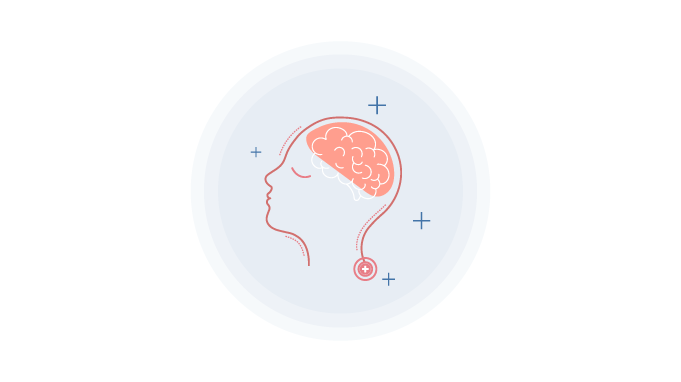7 Tips on Ramadan Food Habits for Employees Fasting at Work in 2022
Fasting is an important tradition in many religions of the world. In the holy month of Ramadan, nearly 20% of the world's population (1.6 billion Muslims) abstains from food and drink for 30 days. Typically, they break their fast at sunset with iftar and then eat again at dawn with suhoor.
Fasting is meant to remind us to be grateful and remember the underprivileged. Fasting during the month of Ramadan, or one of the five pillars, is mandatory for all healthy adults who are practicing Islam.
Even in workplaces employers must pay special attention to their employees who are fasting. It becomes challenging for the workforce to keep up with productivity and performance demands during this time. Ramadan is also a good time to start certain eating habits. As the demand of the hour is to be more flexible and adaptable, employees have to make the smart health goals to see out the period in a hassle free manner.
Purpose of Ramadan Fasting
Self-control, discipline, sacrifice, and empathy for the less fortunate are some of the main lessons of Ramadan. We train ourselves to control our desires by abstaining from sinful actions and deeds as part of fasting.

In Ramadan, we are rewarded with self-growth and the chance to learn more about ourselves. When it comes to spiritual rewards, devotion to prayer, and commitment to charity, fasting provides a chance to introspect at our lives.
Ramadan is also the time when workplaces embrace diversity. It is the celebration of different cultures, which make workplaces stronger and inclusive.
Benefits of Fasting
Fasting is a practice that dates back centuries and plays a central role in many religious cultures. There is evidence to prove that fasting can positively affect your health. Some of the main benefits of fasting are-
1. Promotes Blood Sugar Control by Reducing Insulin Resistance
According to one study, type-2 Diabetic patients who fasted for short periods reduced their blood sugar levels significantly with intermittent fasting. Intermittent fasting is also associated with reducing insulin resistance by cutting down on calorie intake.

Along with lowering blood sugar, fasting could prevent spikes and crashes by maintaining steady blood sugar levels. You should, however, consult your doctor before fasting if you suffer from diabetes.
Suggested read: Ways around Managing Diabetes in the Workplace
2. Promotes Better Health by Fighting Inflammation

Chronic conditions, such as heart disease, cancer, and rheumatoid arthritis, are believed to be caused by inflammation. A study on 50 healthy adults, who fasted intermittently for one month, showed a significant decline in inflammatory markers. It allows the body to detox naturally.
3. Enhances Heart Health by Improving Blood Pressure and Cholesterol Levels
Heart disease is considered as the leading cause of death worldwide, accounting for an estimated 31.5% of deaths globally. Revamping your diet and lifestyle is one of the most effective ways to reduce your risk of heart disease.

A recent study found that fasting can be particularly beneficial to heart health. Fasting on alternate days for two months caused a reduction in LDL cholesterol of 25%.
Suggested read: Heart Rate Monitor: Positives, Mechanism, Healthy Exercises
4. Limits Calorie Intake And Aids In Weight Loss
Abstinence from certain foods and beverages will decrease your overall calorie intake, resulting in weight loss.
Over a 12-24 week period, one review found that whole-day fasting could significantly reduce body weight by 9% and decrease body fat. According to another review, intermittent fasting over 3–12 weeks was as effective in inducing weight loss as long-term diets.
5. Boosts Growth Hormone Secretion, Crucial for Growth, Metabolism, Weight Loss, and Muscle Strength
Human growth hormone (HGH) is a protein hormone central to many aspects of your health. Research shows that this key hormone is involved in growth, metabolism, weight loss, and muscle strength.
Several studies have found that fasting for 24 hours could naturally increase GH levels.
Fasting helps maintain steady blood sugar and insulin levels throughout the day, which further optimizes GH levels.
Despite its long list of probable health utilities, fasting may not be right for everyone.
If you suffer from diabetes or low blood sugar, fasting can lead to spikes and crashes in your blood sugar levels, which can be potentially dangerous. Additionally, fasting is not recommended for people with comorbidities without any medical supervision.
Suggested read: Learn How To Lose Weight At Work With These 11 Useful Tips
Fasting At Work - Challenges
Working while being unable to even drink a glass of water is not easy. People who are fasting at work face many challenges, from declining energy levels to managing time and paying attention to tasks.
1. Energy Management Challenge
Ramadan challenges all three pillars of physical energy (sleep, nutrition, and fitness). During Ramadan, employees suffer from sleep deprivation because they get up early for their meals before dawn.

Furthermore, they also have a serious nutritional challenge because they don't eat well or eat unhealthy "Ramadan foods". Of course, fitness is the last thing on a fasting person's mind. Over 30 days, each of these has a huge impact on the person's energy levels and productivity.
Suggested read: Try the Sleep Challenge and Feel More Productive at Work
2. Focus Management Challenge

Physical fatigue makes it difficult to engage in energy-intensive activities such as deep focus. When the brain is hungry and dehydrated, it cannot function at peak levels. And brain is one of the largest consumers of energy in the body. This impacts both focus and productivity.
3. Time Management Challenge

During Ramadan, a professional's routine is turned upside down. Professionals struggle with effective time management by waking up before dawn, staying up late, and participating in extra community activities. The challenge is to balance their work commitments and spiritual commitments during the month.
Ramadan Food Habits For Employees Observing the Fast
People who practice the holy fast, experience challenges during this period, especially those who work. Here are seven tips on Ramadan food habits to ensure that fasting employees remain fit enough to continue working.
1. Fill Up Your Platter With Fruits
Ramadan is an ideal time to focus on eating fruits that will fill you up fast without adding too many calories to your diet. Fill up your platter with fruits like dates, oranges, apples, etc.

These fruits not just contain high water content but are also rich in fiber. The fiber and water content will keep you full and satisfied while fasting. As a result of its low glycemic index, the fruit does not spike your blood sugar levels. However, consult your dietician beforehand to strike out the fruits which may have higher glycemic values.
2. Hydrate Properly
While fasting, it is a more natural tendency to feel the urge to drink some water, then grab some snacks. Therefore, it is very important to hydrate the body when allowed to drink water.

Even if you don't seem thirsty, drink fluids throughout the night. Thirst is a sign that your body is dehydrated. Caffeinated drinks can dehydrate you more, so choose fluids without caffeine.
Don't overdo it with too much drinking at one time. Water intoxication can occur when you consume several gallons at once, diluting your body's electrolytes.
Suggested read: Water Challenge: A Step towards a Healthy Lifestyle
3. Go Easy on High-Calorie Foods
Try avoiding deep-fried fast foods or foods with high-fat content. Although it may seem tempting, gulping high-calorie foods to break the fast can make the body more lethargic and lead to weight gain.
To provide your body with all the nutrients it needs, you should eat whole grains, vegetables, and fruits.
Try to incorporate fruit salads, fresh fruit creams, and vegetables into your diet to provide a tasty yet healthy alternative to the fatty substitutes.
4. Sail Smoothly With Smoothies
During Ramadan, smoothies can be one of the best ways to keep up with a healthy diet plan. Smoothies are great because they're simple to make, and you might already have most of the ingredients in your kitchen.
You can make fresh fruit smoothies, vegetable smoothies, and milkshakes. While fasting in Ramadan, this is a healthy and filling breakfast option.
5. Eat High Fiber Meals
Complex carbohydrates and high-fiber foods are foods that provide long-lasting energy. Carbohydrates with complex structures supply energy but release it slowly throughout the day.
Examples include oats, beans, rice, and wholewheat. Also, fruits and vegetables are fiber-rich foods that are digested easily.
6. Take It Slow With Eating
After being hungry for more than half of the day, it is natural to eat meals quickly and carelessly. However, eating too fast can cause weight gain.
Researchers have found that people who eat rapidly gain more weight over time than people who eat slowly. Furthermore, eating your food rapidly also affects the digestive process.
When you are breaking your fast, eat your meals slowly. It is okay to take a few extra minutes, as the “food will not run away”.
7. Avoid Drinks With High Amounts of Added Sugars
Sugary drinks are often consumed to break fasts. Sugar consumption provides the body with extra energy source without supplying significant nutrients. High sugar consumption can lead to unhealthy weight gain, and obesity.
Substitute the sugary or fizzy drinks with lemon juice and natural fruit juices. Doing so will not just replenish the lost electrolytes, but also help you avoid extra calories.
Suggested read: Try the No Sugar Challenge for Insane Results
Concluding Thoughts
Fasting during Ramadan is as much a mental exercise as it is a physical one. Even though we may prepare our minds differently, adhering to some wellness tips and food habits can help employees balance their work and personal beliefs.

Vantage Fit - A complete AI-Powered Solution for seamless implementation of your Corporate Wellness Program to nurture a healthy and engaged workforce




